 With the start of a new academic year comes the dreaded, seemingly never-ending stream of grading. Grading, and providing feedback to students in general, is the most challenging precisely in the places where it is most crucial – teaching complex skills and concepts, such as how to design an experiment, analyze data, and present results. That’s been a frustration for us with our SimBio Virtual Labs since we started introducing auto-grading, but this year we are experimenting with some new techniques for offering automated, personalized feedback, and we’re pretty excited about them!
With the start of a new academic year comes the dreaded, seemingly never-ending stream of grading. Grading, and providing feedback to students in general, is the most challenging precisely in the places where it is most crucial – teaching complex skills and concepts, such as how to design an experiment, analyze data, and present results. That’s been a frustration for us with our SimBio Virtual Labs since we started introducing auto-grading, but this year we are experimenting with some new techniques for offering automated, personalized feedback, and we’re pretty excited about them!
As those who are familiar with SimBio’s products know, our modules are built around sophisticated simulations that allow a lot of open-ended exploration. Our interactive chapters and tutorials contain multiple-choice questions that provide instant-feedback to students. We’ve begun adding instant-feedback questions to our virtual labs as well. While these multiple choice questions are certainly useful, they are not very effective for assessing many higher-level concepts and skills. For example, can multiple choice capture whether a student truly understands natural selection? Or if they can design a proper experiment? Or whether they can explain how diffusion and electrical repulsion interact to form a membrane potential? Our experience says no. While the essay and graphing questions in our materials are way more powerful, we haven’t had a way to offer immediate feedback for those – students often have to wait days to hear back from their instructor, long past when the feedback would best help them learn.
With support from a “cyberlearning” grant we received from the NSF, we’re taking our Darwinian Snails lab, which explores natural selection and experimental design, and using it to test some new feedback techniques we’ve been developing. We’ve started with two new tools that integrate aspects of essay and multiple-choice questions. We’re calling the first “LabLibs” (after Mad Libs), and the second, WordBytes.
In both cases, we constrain the choices that students can make, while still allowing them a lot of independent-thinking and flexibility. The hope is that the constraints make it possible for us to deduce what students are thinking and to offer them appropriate feedback. Our preliminary data look very promising. Students give a similar range of answers in these interfaces to answers they give in completely open-ended essay questions, and we have successfully implemented automated feedback for our LabLibs questions (we’re still working on WordBytes feedback algorithms).
Look for LabLibs, WordBytes, and more to start appearing throughout SimBio’s materials over the next couple of years. If you’d like to help with the research, you’re welcome to switch the old Darwinian Snails lab for our new research version. I find this one of the most rewarding projects we’ve undertaken at SimBio, as being able to provide immediate feedback to students on important challenges like experimental design should make a huge difference in how effectively they learn.







